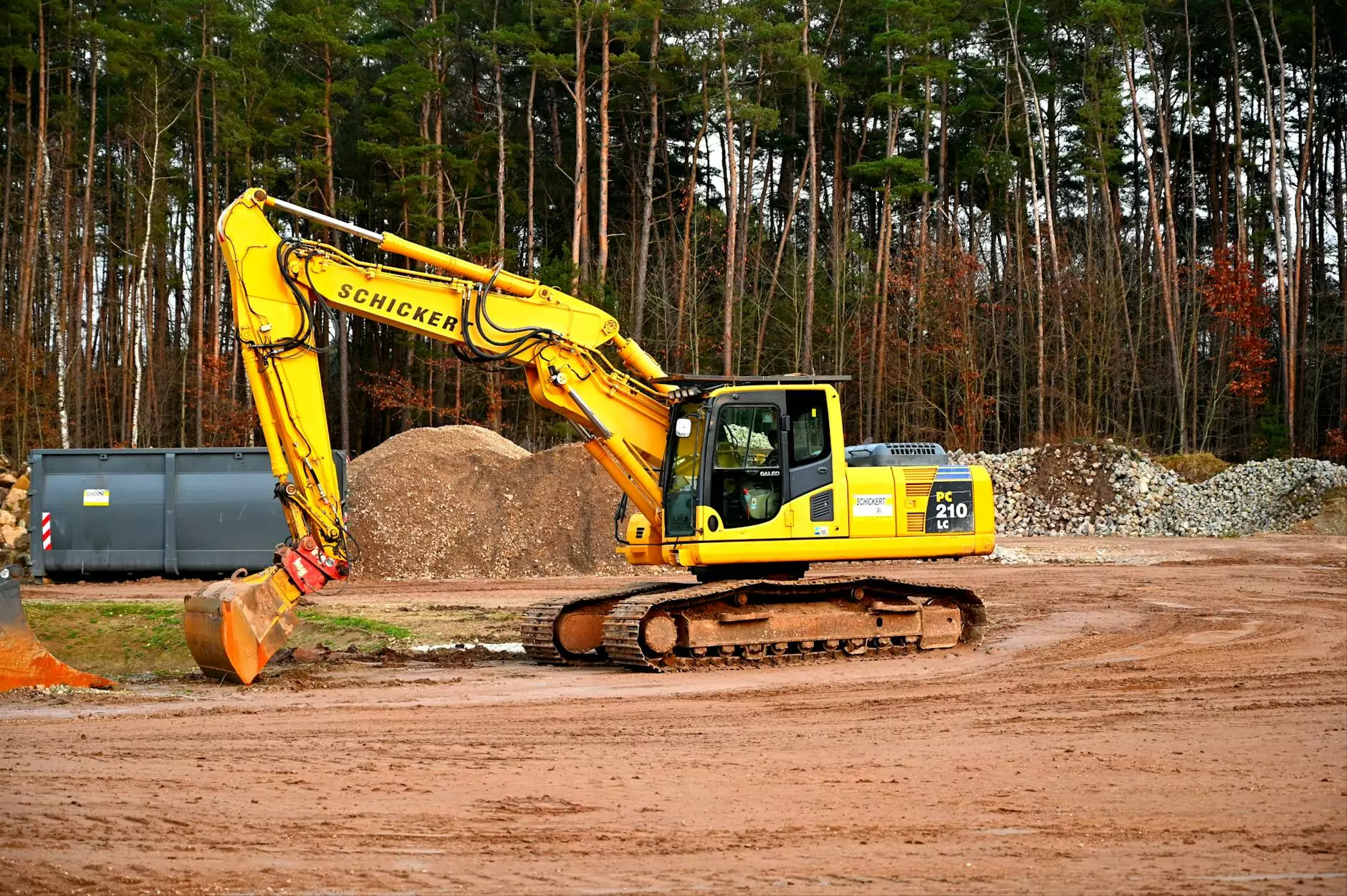Understanding Hydraulic Excavator Components for Optimal Performance

In the realm of construction machinery, few pieces of equipment are as versatile and indispensable as the hydraulic excavator. A critical element of this machinery's success is its hydraulic excavator components. These components work collectively to provide the operational strength and flexibility that construction projects demand. Whether you’re a business owner, contractor, or enthusiast, understanding these components can significantly enhance your operational performance and reduce downtime. In this comprehensive guide, we will explore the various components, their functions, and why sourcing high-quality parts from trusted suppliers like Shop Hydraulic America is essential for your business.
Table of Contents
- 1. What is a Hydraulic Excavator?
- 2. Key Components of Hydraulic Excavators
- 2.1 The Hydraulic System
- 2.2 Engine and Transmission
- 2.3 Undercarriage
- 2.4 Attachments
- 3. Importance of Quality Hydraulic Excavator Components
- 4. Conclusion
1. What is a Hydraulic Excavator?
A hydraulic excavator is a heavy machine designed for excavation and earthmoving tasks. Equipped with a bucket, arm, or other tools, the excavator utilizes hydraulic power to perform a variety of functions—digging, lifting, and demolition among them. Hydraulic systems play an integral role in their operation, providing the force needed to accomplish these tasks efficiently and effectively.
2. Key Components of Hydraulic Excavators
To appreciate how hydraulic excavators function, let’s delve into their core components, which are vital for their operation:
2.1 The Hydraulic System
The hydraulic system is the beating heart of any hydraulic excavator. It consists of various components that work together to generate and control hydraulic power:
- Hydraulic Pump: Converts mechanical energy into hydraulic energy, creating fluid pressure to power the system.
- Hydraulic Cylinders: Act as the muscle of the excavator, converting the hydraulic energy back into mechanical energy, allowing the arms and bucket to move.
- Hydraulic Fluid: The lifeblood of the system that transmits energy through the hydraulic machinery.
- Hoses and Fittings: They transport the hydraulic fluid throughout the system and connect different hydraulic components.
2.2 Engine and Transmission
The engine and transmission are crucial for the operational efficiency of a hydraulic excavator:
- Engine: Provides the power necessary for movement and operation of hydraulic components. Most excavators utilize diesel engines due to their reliability and power output.
- Transmission: Transfers power from the engine to the tracks or wheels, allowing for both movement and operational efficiency. This component is vital for controlling speed and torque.
2.3 Undercarriage
The undercarriage serves as the foundation of the hydraulic excavator and impacts overall stability and mobility:
- Tracks: Provide traction and stability while ensuring the excavator can operate on various terrains.
- Sprockets and Idlers: Work in conjunction with the tracks to facilitate smooth movement and navigation.
- Rollers: Support the weight of the machine and help distribute its load evenly.
2.4 Attachments
Attachments enhance the versatility of hydraulic excavators, allowing them to perform different tasks:
- Buckets: The most common attachment, used for digging, loading, and moving materials.
- Hydraulic Breakers: Used for demolition and breaking hard surfaces.
- Brush Cutters: Allow excavators to manage vegetation and land clearing tasks.
- Augers: Enable excavators to bore holes in the ground for posts or other structures.
3. Importance of Quality Hydraulic Excavator Components
Investing in high-quality hydraulic excavator components is vital for several reasons:
- Operational Efficiency: Quality parts ensure that your excavator runs smoothly and effectively, which minimizes downtime and maximizes productivity.
- Reduced Maintenance Costs: High-quality components tend to wear and fail less frequently, saving you on repairs and replacements over time.
- Safety: Reliable components enhance operational safety for operators and crew members, reducing the risk of accidents on the job site.
- Longevity: Quality parts contribute to the longevity of your equipment, ultimately resulting in better return on investment.
4. Conclusion
In conclusion, understanding the various components of hydraulic excavators is essential for anyone involved in construction and heavy machinery. Each component plays a critical role in ensuring the equipment operates efficiently and effectively. If you’re looking to maintain or enhance the performance of your hydraulic excavator, prioritizing high-quality parts can make all the difference. For the best in hydraulic excavator components, consider partnering with trusted suppliers like Shop Hydraulic America to ensure your machinery remains reliable and efficient.
By focusing on both quality and understanding, you position your business for success in an industry that demands excellence. Take the time to educate yourself on these components, and your investments will pay dividends in project efficiency and operational effectiveness.









